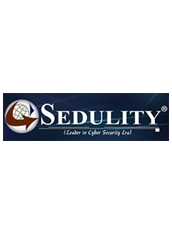Copyright Policy
Copyright Policy
The transfer of copyright is standard practice in serials and journals publishing. It is designed to facilitate the protection from copyright abuse for authors, editors, and publishers involved in the creation of a single copyright product composed of multiple contributions.
Our Rationale is as Follows:
-
ownership of copyright by Cyber Times ensures maximum international protection against infringement, libel or plagiarism
-
it enables Cyber Times to deal efficiently with requests from third parties to reproduce, reprint, or translate an article, or part of it, and in accordance with a general policy which is sensitive both to any relevant changes in international copyright law and to the general desirability of encouraging the dissemination of knowledge. Notwithstanding this, we shall always use all reasonable endeavors to ensure that any direct request to reprint an author's contribution or a part of it, for example, figures, tables or illustrations, in another publication is approved by the author prior to permission being given.
An increasing number of journals are now published in an electronic or digital edition. In addition to publication of an author's article in conventional printed form, an author's assignment of copyright also signifies an author's agreement to its publication and/or storage electronically or digitally. The Journal may also arrange to include an author's article in electronic or digital document-delivery services and databases.
Cyber Times strongly recommends to authors that they transfer copyright, although it is not necessarily a condition of publication. An author can retain copyright in her or his paper, but we must receive a formal signed statement licensing us to publish the work exclusively, worldwide, and in all forms, in the journal. The author is shown as copyright holder on the article in print, and any permission requests are forwarded to the author, rather than being dealt with by this office.
Nothing in the copyright transfer agreement is intended to restrict an author's rights as the Author, or in the case of work written by an author during the course of his or her employment, an author's employer's rights, to revise, adapt, prepare derivative works, present orally or otherwise make use of the contents of the article.
As a courtesy, we request that authors advise us of such reproduction, and acknowledge and cite the journal as the original source of publication.
For example, authors themselves retain the right to reproduce their own paper in any volume of which the author acts as editor or author, subject to acknowledgement and citation.
We also require that you obtain the necessary written permission in advance from any third party owners of copyright for the use of any of their text, illustrations, graphics, or other material, in your article and in our journal.
In some cases copyright will be held by the Author's employer, for example, the British (Crown) or US Government, where there are no restrictions on access, and the paper will be shown as being in Crown or US Government Copyright. It is essential that authors ensure requisite licenses are secured from such employers once a paper has been accepted for publication.
If the paper is not published in the Journal, the rights revert to the author as original copyright holder.
Our policy on photocopying is that a third party is free to make one copy of an article for the purposes of private study or research without seeking the permission of Cyber Times or the author.
Unlicensed multiple copying without permission is illegal.












